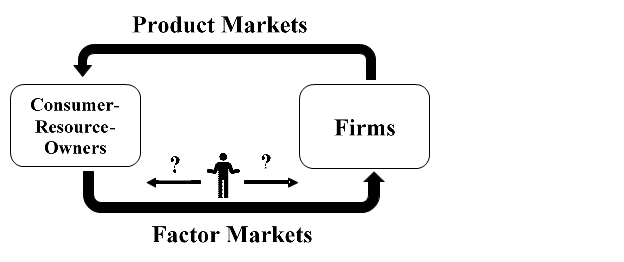
The highly mathematical nature of the Arrow-Debreu and other similar models of general equilibrium hide rather than elucidate the nature of equilibrium in a private property market economy where all factors of production may be purchased or rented. It is an empirical commonplace that the Arrow-Debreu model of general equilibrium does not describe the real world, but it is equally commonplace to accept it as representing the pure logic of the competitive market economy in an idealized world free of transactions costs. But the model fails even as an idealized model; it actually mistakes the logic of a private property market economy. Unlike McKenzie’s model of idealized general equilibrium under constant returns to scale, Arrow and Debreu claim to have shown the existence of competitive equilibrium under decreasing returns to scale and positive pure profits. The Arrow-Debreu model (again unlike the McKenzie model) needs to assign the profits to individuals and this is done using the notion of “ownership of the production set.” But this notion suffers from a fatal ambiguity. If Arrow and Debreu interpret it to mean “ownership of a corporation” then a simple argument of the form “labor can hire capital or capital can hire labor or a pure entrepreneur can hire both” defeats the alleged necessity of assigning residual claimancy to the corporation. A given corporation may or may not end up exploiting a set of production opportunities (represented by a production set) depending on whether it hires in labor and undertakes production or hires out its capital to others (all by assumption at the parametrically given prices). In the latter case, residual claimancy is elsewhere. There is no such property right as “ownership of a production set” in a private property market economy.
The published version of the paper is: Ellerman, David. 2020. “How Mathematics Obscures Conceptual Errors in Arrow-Debreu General Equilibrium Model.” Review of Economics and Economic Methodology IV (1 Summer): 7–30.